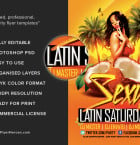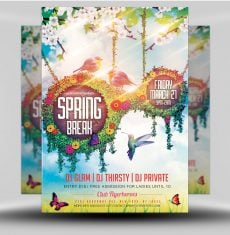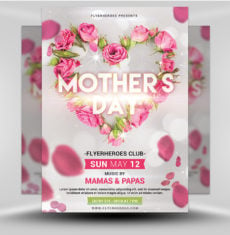Sexy Latin Saturdays Flyer Template
Sexy Latin Saturdays is a bright and summery flyer template for Latin / Summer themed parties and events.
See also: All Latin Flyer Templates for Photoshop
Design Style
Sexy Latin Saturdays has an orange and yellow gradient background with surrounding palm trees and coconuts to give off that warm and fresh summer vibe.
Whilst Latin Summer Nights is named to be used for Latin genre events, it needn’t be! Latin Summer Nights will make the perfect summer bash or beach party event flyer design with next to no customisation!
The large and clear 3D elements give a fantastic feeling of realism and depth to the design and with basic customisation tools like the Type Tool, you can have this flyer template matching your event details and brand in just a couple of minutes.
All text elements are easy to edit and can simply be changed using the Photoshop Type Tool.
The feature image can also be easily replaced (stock models not included) by simply pasting your model stock into the placeholder layer we’ve set up for you.
View related Flyer Templates:
- Salsa Flyer Template
- Latin Fridays Flyer Template 2
- Latin Nights Beach Flyer Template
- Sexy Latin Tuesdays Flyer Template
- Reggaeton Flyer Template
What fonts do I need for this template?
General information:
Sexy Latin Flyer Template from FlyerHeroes is fully editable Photoshop PSD and part of the exclusive INDUSTRYKIDZ flyer design series INDUSTRYKIDZ Bundle 1. Once you have downloaded this template, using Adobe Photoshop CS4+ you can make use of this flyer design an unlimited number of times 100% royalty free.
You are free to customise this design however you wish and use in both personal and commercial projects without ever crediting FlyerHeroes.
Stock images of models are not included in the final download.

















